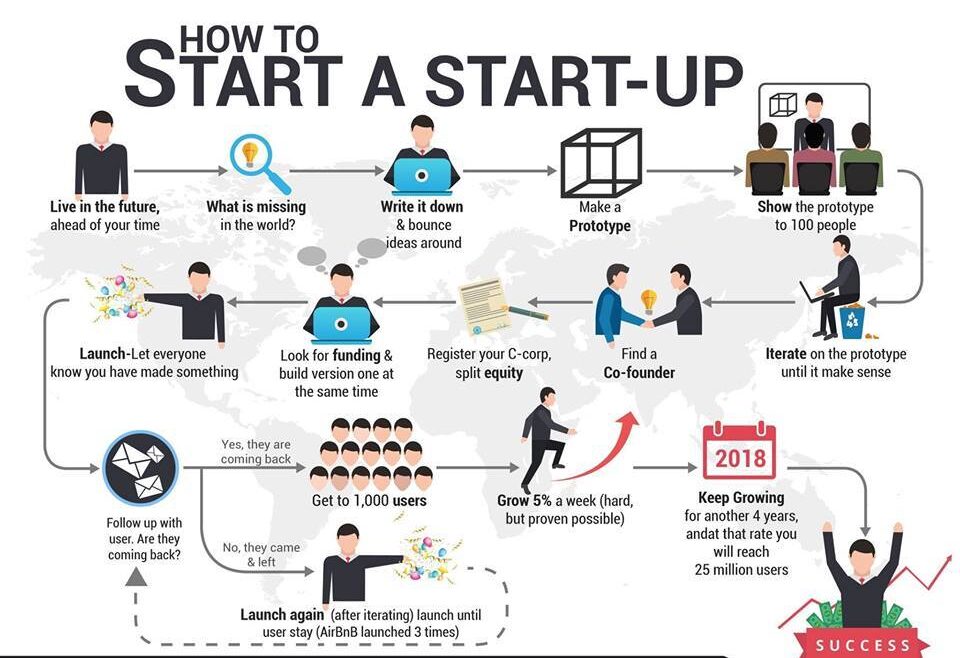Using Analytics for Startup Development: Leveraging Data for Success
Using Analytics for Startup Development: Leveraging Data for Success https://theraise.eu/wp-content/uploads/2023/07/data-analytics-4198207-1-ad97301587ac43698a095690bc58c4c1-1024x683.jpg 1024 683 RAISE fosters startup growth and scale-up within and across Europe https://theraise.eu/wp-content/uploads/2023/07/data-analytics-4198207-1-ad97301587ac43698a095690bc58c4c1-1024x683.jpgStartups represent a realm of innovation and disruption, where ideas transform into reality and entrepreneurs navigate uncharted waters to build successful ventures. In this dynamic landscape, the strategic use of analytics has emerged as a game-changer, providing invaluable insights that can drive decision-making, optimize processes, and foster growth. In this article, we delve into the significance of analytics for startup development, exploring how data-driven approaches can propel startups towards success.
- Understanding Customer Behavior:
One of the most critical aspects of startup development is understanding the target market and customer behavior. Analytics allows startups to collect and analyze vast amounts of data, helping them comprehend customer preferences, pain points, and behaviors. With this knowledge, startups can tailor their products or services to meet customer needs effectively, leading to increased customer satisfaction and loyalty.
- Validating Ideas and Products:
Startups often operate in an uncertain and highly competitive environment. Analytics aids in validating business ideas and products by providing real-time feedback. Through A/B testing, user behavior analysis, and other data-driven methodologies, startups can test hypotheses and refine their offerings, reducing the risk of investing in unsuccessful ventures.
- Optimizing Marketing Strategies:
Effective marketing is crucial for a startup’s success. Analytics equips startups with the ability to measure the performance of marketing campaigns, track customer acquisition costs, and identify the most effective channels for reaching their target audience. These insights allow startups to optimize their marketing efforts, ensuring that resources are allocated efficiently for maximum impact.
- Improving User Experience:
User experience (UX) plays a pivotal role in attracting and retaining customers. Analytics helps startups gain a deeper understanding of how users interact with their products or services. By analyzing user behavior, feedback, and engagement metrics, startups can identify pain points and areas for improvement, leading to a more refined and user-centric product.
- Enhancing Operational Efficiency:
Startups operate in a resource-constrained environment, making operational efficiency a key priority. Analytics provides startups with data-driven insights to optimize internal processes, identify bottlenecks, and streamline operations. From supply chain management to resource allocation, data-driven decisions lead to cost savings and improved productivity.
- Predictive Insights for Decision-making:
Analytics offers startups predictive capabilities, enabling them to anticipate future trends, customer demands, and potential challenges. By leveraging data to forecast outcomes, startups can make informed decisions and proactively adapt their strategies, staying ahead of the competition.
- Securing Investor Confidence:
For startups seeking funding, analytics-backed data and metrics provide compelling evidence of their business’s potential. Accurate data on customer traction, revenue projections, and market opportunities instill confidence in investors, increasing the likelihood of securing funding for growth and expansion.
Challenges and Considerations:
While analytics presents immense opportunities, startups face certain challenges in its implementation. Data security and privacy, data quality, and the need for skilled data analysts are factors that must be carefully addressed. Startups must also strike a balance between data-driven decision-making and the entrepreneurial intuition that sparks innovation.
Summed up
Analytics has become a cornerstone of startup development, empowering entrepreneurs with the ability to make informed decisions, optimize processes, and drive growth. By understanding customer behavior, validating ideas, and enhancing user experience, startups can gain a competitive edge in their respective industries. Leveraging analytics for marketing optimization, operational efficiency, and predictive insights ensures startups are well-positioned for success. As the startup ecosystem continues to evolve, data-driven approaches will remain a pivotal factor in shaping the landscape of innovation and entrepreneurial success.
Headline picture: Investopedia










